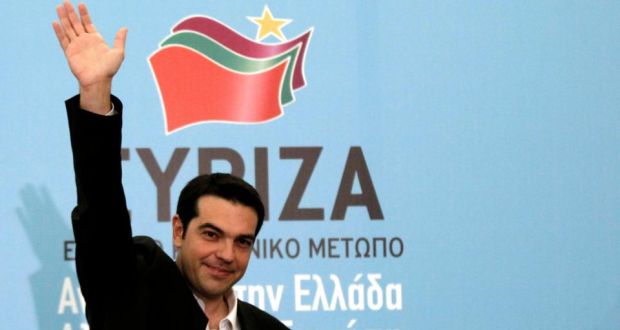Greek Anti-bailout Party Win Threatens U.S. Hegemony
Greece just announced that its euroskeptic party Syriza has won the general elections by a big margin.
So what, you say?
First, what happens in Europe happens here later. But there’s a lot more to this story than that.
You see, while European politicians almost never wax so bold as to out-rightly complain about the U.S. forcing them to impose sanctions on Russia, they all know that these Russian sanctions are what led to the drop in the euro’s value, since Russia retaliated by imposing its own sanctions on Europe. Now, Germany won’t complain. The lower the euro goes, the more goods it exports. And since Merkel is generally seen as the head of the EU shadow government, that signals a major struggle between her and those in the EU who wish to give in to Syriza’s demands.
The most portentous of those demands is a restructuring of the Greek national debt. If the EU caves, then Greece gets to pay only part of their debt and leaves Europe (mostly Germany) paying the rest. Once they get away with this, they simply start the profligate spending process all over and the EU pays on into eternity.
So what does that have to do with the U.S. oligarchic government?
Think Russian sanctions.
Eventually, other countries will no doubt follow suit. After all, if one country gets to shed part of its debt Scot-free, why not another, and another?
Now one of the worst-off countries in the EU is France. Suppose the unthinkable happened and that huge economy decide to demand restructuring, or worse, defaulted.
That would be a calamity for the EU and the world economy, of which we are a part. But President Hollande has long complained that its debt burden to the EU is too onerous. He sounds as if he too might want to restructure. And how could they deny him this?
Further, Hollande is one of those European leaders who has complained of the Russian sanctions, which have come back to bite Europe in the derrière.
It looks as if Europe is headed toward a showdown with the US. At some point, it seems likely that individual nations will cry “enough” and tell the US to shove it.
If that happens, U.S. prestige will slide closer and closer to the gutter and our own sanctions against Russia will be less and less meaningful.
But what if the EU restructures everyone’s debt?
Would they do that?
Remember that the European Central Bank began a quantitative easing program just in time to greet the Greek elections with the money needed to meet Syriza’s demands — despite their pretense of denying this. Coincidence? To answer that question, consider that this quantitative easing came at exactly the wrong time economically. The euro was already dropping like a rock. Quantitative easing has an inflationary tendency. By contrast, the U.S. QEs started at a time when the US dollar was healthy and could hold up without a major loss of value. Not to mention the power of the petrodollar.
It looks like they knew they’d be forced to meet the Greek restructuring demands (although they continue to say they won’t, the usual pattern in these cases). If so, they may well be forced to meet the demands of many more countries.
Now the euro has dropped more today on news of the Greek election results.
As for the implications for the US, meeting these demands could easily collapse the EU. If that happens, it’s every nation for itself.
The chances that each individual nation would follow US demands to maintain the sanctions against Russia are slim to none. It is more likely that an increasingly rebellious Europe would tell the US to do what Victoria Nuland told the EU to do to itself.
But that is only the beginning of woes if you are an élite within the beltway.
They would almost certainly refuse to go along with US demands permission to launch an air strike against Iran – as will be demanded by Netanyahu before Congress. Or other subsequent military actions when they are truly needed to defend our homeland. After all, they’ve heard us cry “wolf” too many times in the past.
The U.S. oligarchy would then be alone, encircled as it were, just the kind of encirclement our elites hoped to impose on Russia.
What went around would have come around.
EDITORS NOTE: The featured image is of Alexis Tsipras, leader of the Syriza Party. Photographer: Kostas Tsironis/Bloomberg.


